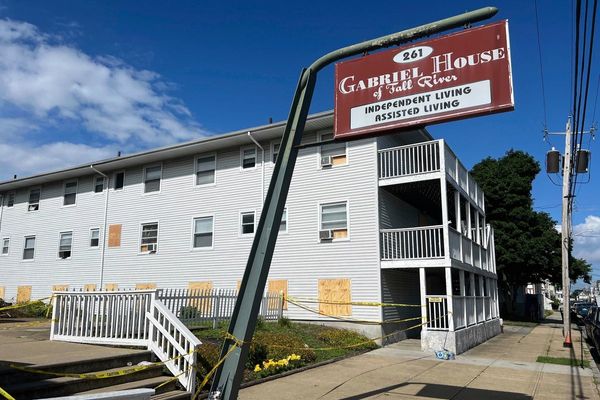
Don and Lewis Ledingham, a father and son from Edinburgh and London, are “huge, absolutely addicted” fans of the TV programme Succession, the final episode of which will screen this weekend. Which is not to say they take many lessons from Logan Roy and his cut-throat clan for the running of their own family firm – a leadership development consultancy, appropriately.
“In our business, we talk about the balance between warmth and edge,” says Don, 65. “As a leader, Logan predominantly lives in the world of edge – which is just the focus on success – but has very little warmth, which is that compassion, empathy and appreciation of others.”
Business leaders should have the humility to recognise that they “know nothing”, he says, which may be why, earlier this year, Ledingham Sr offered his 32-year-old son the position of co-CEO of the company.
Stepping back can be a challenge for any business leader, he says, because having your own firm is “great fun”. “But undoubtedly, this will be part of our succession strategy. This is not a long-term place, but we’re finding it a very good bridge from me being [sole] chief executive to the future where he takes it on.”
Handing over the family firm doesn’t have to be done the Roy way, which is not to say there isn’t potential for dynastic tensions as the younger generation supplants the older. Rufus Sanders was a disaffected language teacher when his father told him he planned to sell the specialist footwear shop he had founded close to Piccadilly Circus in London.
As a younger man, Sanders, now 49, says he had “always held [the family business] at arm’s length, not wanting to be associated with it. But it happened at the right time. I was looking to get out of teaching and this opportunity came up.”
He was conscious of the potential for familial head-butting, however, if he and his father, Michael, worked together.
“So I basically put it on the line: ‘Look, I will join if you leave.’”
How did that go down? “He was taken aback by it, but he could see the sense of it.” It took “about a weekend” for his father to come round to the idea, he says; soon afterwards they embarked on an 18-month handover period.
After that, says Sanders, “he was very much like – well, it’s your thing now. It’s your problem. That was great, because that was exactly what I signed up for.” The business has since closed, and they remain a loving family, he says – clarity over the transition helping to keep it that way.
For some families, succession has a much longer history. Andrew Barlee, 24, will become the seventh generation to take over the running of his family’s leather tanning business outside Edinburgh, once his father, Roger, the sixth, eventually opts to retire.

Management of the firm has an unbroken line back to the shoemaker Thomas Hewit in 1823, but there are perhaps surprising hints of personal ambition in the archives. After Thomas died, his second wife, Janet, took over the business and renamed it J Hewit and Sons – the name it retains today.
“My dad never really pushed any of us to do it,” says Andrew Barlee, given several ancestors had been forced to go into the business instead of pursuing their own ambitions.
“But I did very much like chemistry at school [the business relies heavily on chemical processes], and I really liked coming into work and helping out.”
The fact that the business, which specialises in leather for bookbinding and bagpipes, is 200 years old this year is “really, really cool”, he says. “It’s not that I felt I had to go into it, more that I wanted to be a part of it.”
Roger Barlee says he is determined to hand over the reins without a fight when the time comes. His own father had to struggle to be given autonomy when he inherited the business, he says, “so when he reached retirement age, he left and said: ‘If you want me to come in, you invite me.’
“I will probably follow suit, slowly letting Andrew take more responsibility. And at some point, I will just say, right, I’ve done my bit.”







